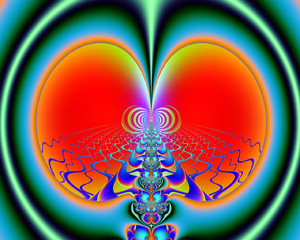Jamie Guinn wrote to me:
"A specific comment on your correspondence with Alan... as someone who crossed through the "gateless gate" I'm convinced as you are that it is nothing more than a nice trick of the brain [No, I am not convinced it is a trick - Tad], but nothing to devote one's life to. Having been a practitioner of zen for a few years I agree with your criticisms. I now prefer my time in meditation involving walking through the woods or gazing over a nature scene with my pipe and a good tobacco blend. :-)
"My own moment of insight occurred during a late night solo drive contemplating "what is the self" and particularly how the brain produces the constant feeling of "self-ness" and how the Eastern traditions work out the subtleties of it being nothing more than an artefact of the brain. When I was able to wrap my head around all the things I had been reading it seemed a "whooshing" happened and for about 5-10 minutes the sensation of self disappeared. It was as if there was observing without the observer... hard to explain, but definitely experienced. There was a deep sense of calm and equanimity... and after a bit it was like the light switch flipped and "I" was back.
"The reason I think this is less a mystical experience and more of a trick of the brain is due to a video from a neuroscientist who had spent a number of years himself practicing in the jhanas, as well as setting up some clinical tests involving brain scans where he described how the process produces a feedback loop on the hippocampus, basically overloading the organ and dissolving the sense of "I". He then went into how some mental illnesses produce a similar constant effect... not necessarily removing the sense of the self, but producing results like where some patients believe they are dead, or have some other strong sensation which produces negative results."
In the context of an essay on Hildegard of Bingen and her (conjectured) migranes, Oliver Sacks wrote that even the loftiest spiritual experiences must have a neurological basis, and Sacks is not a reductionist. So even enlightenment must be explainable in terms of a brain mechanism.
In
Teilhard's Mysticism: Seeing the Inner Face of Evolution, Kathleen Duffy wrote, "Newberg and d'Aquili have devised a model that attempts to explain what happens during times of intense concentration, including periods of deep meditation. They postulate that such activity causes the hippocampus to block certain pathways in the brain, especially the orientation area, and to stimulate others, setting up a reverberant feedback loop. This prevents the brain from forming the distinction between self and the world, creates a sense of oneness and spiritual unity, and brings on a feeling of infinite space."
In
Cognitive Models and Spiritual Maps: Interdisciplinary Explorations of Religious Experience by Jensine Andresen and Robert KC Forman, the feedback loop in the brain is described in detail, though it should be borne in mind that some of this is speculative. They posit that the blocking of the posterior superior parietal lobule causes the self-other dichotomy to dissolve. Note the acronyms used in this book: PFC = pref-frontal cortex, ITL = inferior temporal lobe, PSPL = posterior superior parietal lobule.
